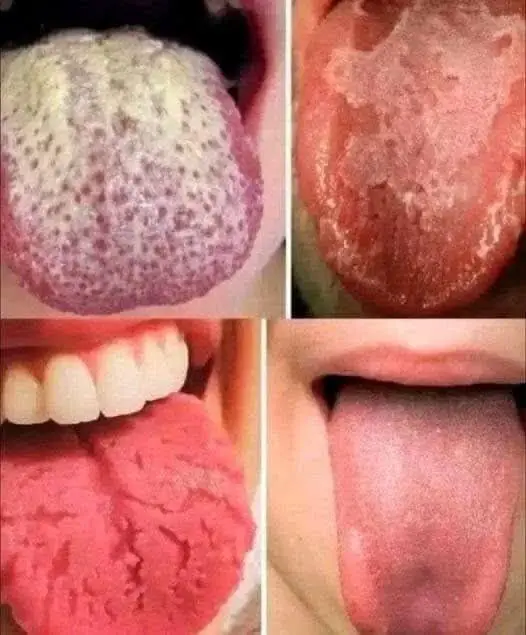What Your Tongue Says About Your Health
Your body often gives subtle hints when something isn’t functioning properly—and your tongue is one of those silent messengers. Changes in its color, texture, or coating can reflect what’s happening inside, even before more serious symptoms appear.
Here’s how to recognize the signs and what they might mean:
✅ Healthy Tongue Appearance
-
Color: Pink
-
Texture: Smooth with a slight, thin white coating
-
Moisture: Gently hydrated, not dry or overly wet
A pink, clean tongue typically indicates good overall health and balanced digestion.
⚠️ What Changes in Your Tongue Could Mean
1. Tooth or Molar Indentations on the Sides
Possible Meaning: Swollen tongue due to digestive inefficiency or fluid retention
-
May indicate poor digestion, nutrient malabsorption, or stress
-
Suggestion: Avoid cold or raw foods, and drink room-temperature water
2. Red Tongue or Dark Pink Color
Possible Meaning: Excess heat in the body (in Traditional Chinese Medicine, this is linked to inflammation or internal stress)
-
Can also signal stress, fatigue, or emotional irritation
-
Suggestion: Avoid spicy, greasy, or caffeinated foods; focus on cooling foods like cucumber or herbal teas
3. Pale or Purplish Tongue (Poor Circulation)
Possible Meaning: Sluggish blood flow, which may lead to symptoms like:
-
Cold hands and feet
-
Muscle cramps
-
Migraines or fatigue
-
Suggestion: Gentle exercise, yoga, or warm teas with circulation-boosting herbs like ginger or cinnamon
4. Cracked Tongue (Fissures)
Possible Meaning: Often linked to hormonal changes, especially during menopause
-
May also be related to excess body heat, dehydration, or vitamin deficiencies (such as B vitamins)
-
Suggestion: Avoid alcohol, caffeine, and spicy foods; increase hydration and eat cooling, nutrient-dense foods
5. Thick Coating or Yellow-White Film
Possible Meaning: Potential bacterial or yeast overgrowth, digestive imbalance, or poor oral hygiene
-
Suggestion: Stay hydrated, brush the tongue gently, and reduce sugar and processed foods
When to Seek Medical Advice
If your tongue changes in appearance suddenly, shows sores, becomes painful, or presents with persistent symptoms (such as swelling, discoloration, or burning sensations), consult a healthcare provider or dentist. It may indicate:
-
Vitamin or mineral deficiencies
-
Allergies or oral infections
-
Underlying systemic conditions (e.g., anemia, diabetes)
Final Thoughts
Your tongue can be a window into your inner health. By paying attention to these small changes and taking early action—whether it’s adjusting your diet or seeing a healthcare professional—you may prevent bigger issues down the line.
Remember, no single sign is a diagnosis on its own. But when viewed alongside how you feel overall, your tongue can offer meaningful clues to support your well-being.

Leave a Reply